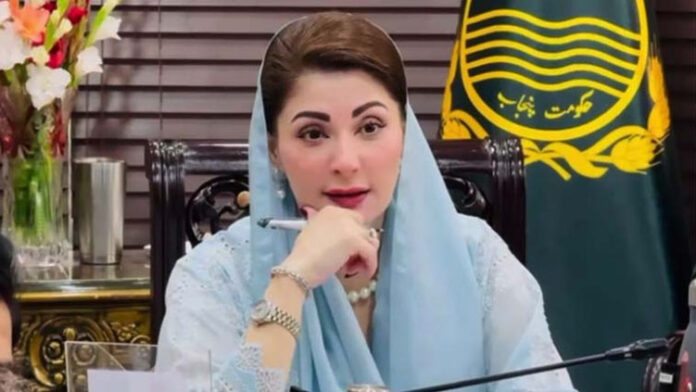LAHORE (Bakhabar Pakistan) – In a pressing call for action, Punjab Chief Minister Maryam Nawaz has reiterated the urgent need for ‘climate diplomacy’ with India as a strategy to confront the escalating smog crisis plaguing Lahore. This call comes in light of the city experiencing its worst air quality in recent days, with the Air Quality Index (AQI) reaching an alarming level of 708 points.
During her address at a Diwali event in Lahore, CM Maryam highlighted the critical importance of collaboration between Pakistan and India in addressing this shared environmental challenge. She stated, “It is imperative that we initiate a diplomatic dialogue with India to tackle the smog that has enveloped Lahore.” Her remarks underline that the issue transcends politics, framing it instead as a humanitarian crisis affecting the health and well-being of millions.
“I am contemplating reaching out to the Chief Minister of Indian Punjab,” she added, emphasizing that effective solutions to combat smog require coordinated efforts from both nations. She poignantly remarked, “The winds do not recognize the existence of borders; pollution knows no boundaries.” This statement encapsulates the essence of her plea for joint action against the deteriorating air quality that affects both countries.
The current smog crisis has reached alarming levels across several regions of Pakistan, with Lahore at the forefront of the problem. On Tuesday, the city’s average AQI was recorded at a staggering 347, reflecting a concentration of particulate matter (PM2.5) that significantly exceeds the air quality standards set by the World Health Organization (WHO). Some neighborhoods, including Gulberg and Maratab Ali Road, reported AQI levels that soared beyond 500, categorizing the air quality as highly hazardous.
The situation has become dire, with parts of Lahore experiencing AQI levels above 700 on Monday, prompting health officials to issue warnings about the dangerous conditions. As smog envelops the city, it poses severe health risks to residents, particularly vulnerable populations, including children, the elderly, and those with pre-existing respiratory conditions.
In response to the deteriorating air quality, the Punjab government has implemented a series of emergency measures. These include adjusting school timings in Lahore to reduce children’s exposure to polluted air and making the wearing of masks mandatory in the city and its surrounding areas. These actions reflect the government’s commitment to safeguarding public health amid the ongoing environmental crisis.
In addition to addressing the smog situation, CM Maryam announced the upcoming launch of a ‘Minority Card’ in Punjab, set to debut on December 20. This initiative aims to support impoverished members of minority communities throughout the province. “All minority members across Punjab, particularly those facing economic hardships, will benefit from this program, receiving financial assistance of Rs10,500 through the card,” she stated. This initiative is part of the provincial government’s broader strategy to uplift marginalized communities and provide them with essential resources.
As the smog crisis continues to escalate, the need for effective climate diplomacy and proactive measures becomes increasingly critical. CM Maryam’s advocacy for collaborative efforts with India reflects a recognition that environmental challenges require unity and cooperative strategies to mitigate their impact. Stakeholders are urged to engage in constructive dialogue and joint initiatives to improve air quality and ensure a healthier future for the residents of both Pakistan and India.
In conclusion, the ongoing smog crisis serves as a stark reminder of the interconnectedness of environmental issues, calling for innovative solutions and collaboration across borders. The actions taken by the Punjab government, along with CM Maryam’s commitment to climate diplomacy, may pave the way for a more coordinated approach to tackling air pollution and promoting public health in the region.


